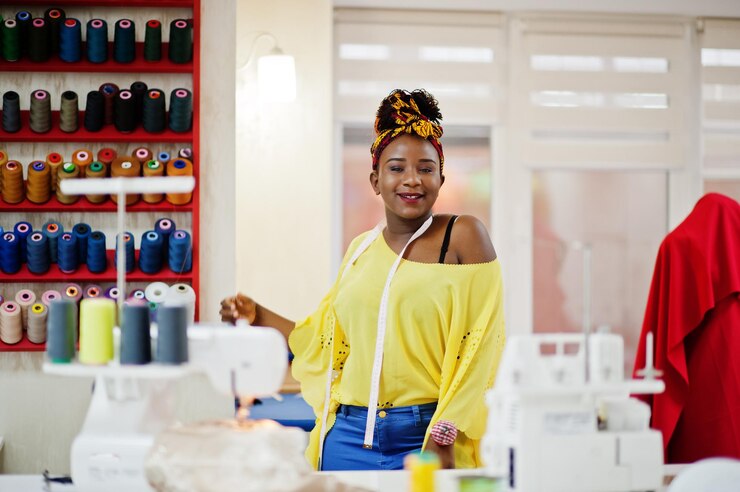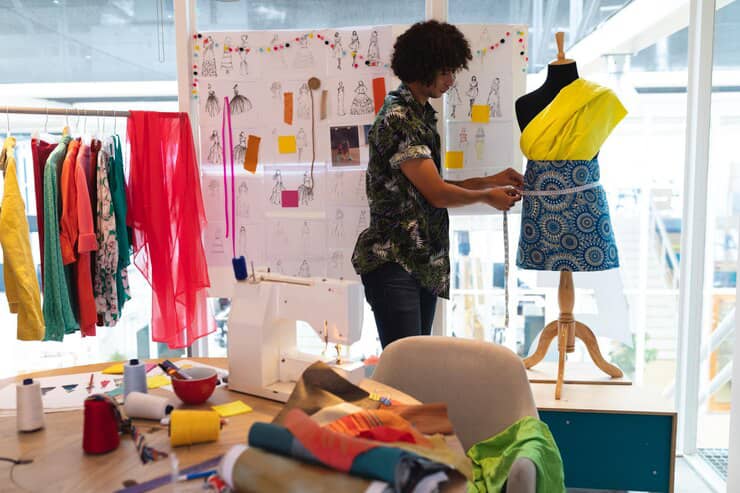
Recently, Kai Collective, a London-based contemporary fashion and lifestyle brand catering to women with accessible clothing, initiated its private sale, followed by a public sale the next day. Throughout the past year, the brand has strategically cultivated anticipation for such events in collaboration with its marketing partner. Owned by Nigerian designer Fisayo Longe, the London-based brand has swiftly ascended to prominence in the realm of women’s fashion globally, originating as an emerging talent. In today’s fashion industry, thriving as an emerging talent is both difficult and easy at the same time.
It’s difficult because of the competitive landscape of the industry. On the other end, it’s easy because of how random you get to succeed as a new entrant – based off your consistency, and creativity. In all of this, knowing how to impress hiring managers, fashion brand owners, partners, collaborators, or even potential investors is a crucial way of securing your first job in the fashion industry or even breaking into fashion.
To reflect the importance of this topic, Business of Fashion (BoF) hosted an advice-led panel at the Jimmy Choo Academy (JCA) in London, in a bid to equip entry-level talent with insights on how to navigate the early stages of their career. As the fashion industry evolves, it becomes increasingly harder for entry-level talents to break into the industry. Here are three tips to make this process easier:
Authentic and Personal Narrative

As earlier mentioned, the fashion industry is a very competitive landscape. The implication of this is that the fashion audience has been exposed to almost the same trends and creations over time. To stand out in this situation, it is important to perfectly curate your brand storytelling and what makes it unique.
The fashion audience, recruiters, investors, and others need to see why you’re the best person for the job, what you plan to do differently, and your novel ideas. For Sophia Soar, Commercial features editor at BoF, “It’s important to make sure that you show your authentic self [in applications and interviews]. The person you are showing up to the interview is the person who will be showing up at work, and getting that across on your CV and application [is important]”.
Personalize your Applications

The mistake most entry-level talent make is positioning themselves as a commodity rather than a person or an individual. Most times, people send the same applications, CVs, resumes, or portfolios to all hiring brands. However, they leave out the part where they need to pay attention to the specific details and needs of these organizations. The fashion industry is a design industry. To perform well, you need to be able to approach matters from a design perspective.
Networking and Self-Awareness
It is very impressive to be good at what you do, have the right skill sets, and deliver high-quality jobs. But, it is important to identify the role of networking in the fashion industry. From fashion shows, exhibitions, sales, new collection drops, and a host of others, self-awareness and the ability to network are very highly essential.

Oftentimes, depending on your role, you may need to represent your organizations in top-level events, meetings, and others. Being prepared and confident in your skills and the deliverables of the organization you represent is top-tier. The culture of having relationships and security in your fraternity along with people who you have had internships with and interaction with will build your influences and that will build your brand’s personality” – Alice Gividen, BoF’s Associate Director of Content Strategy.

